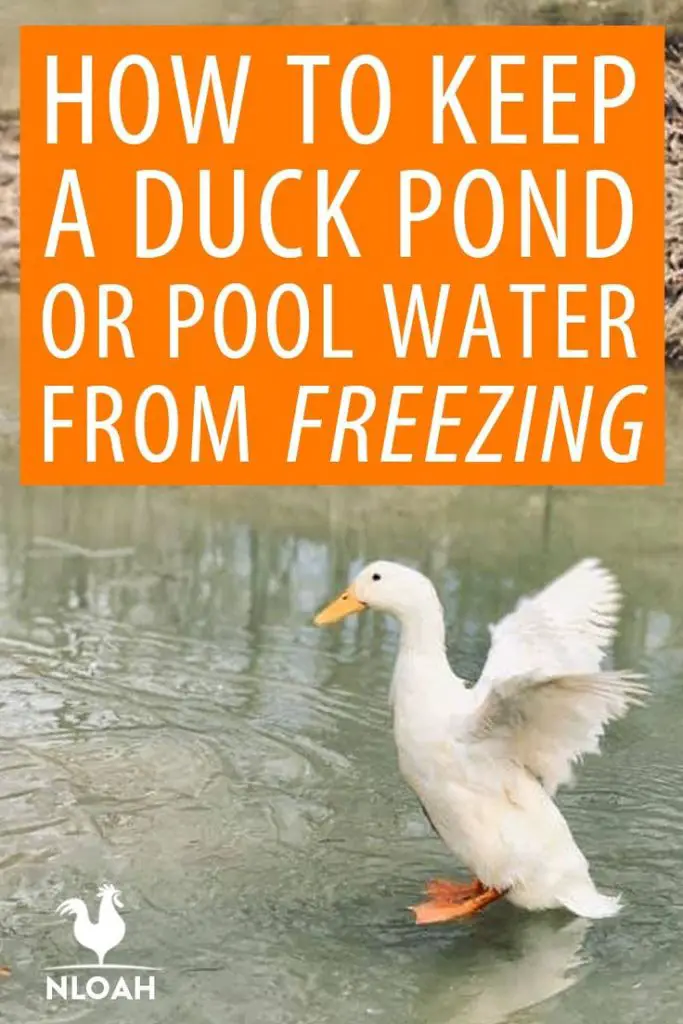During the cold winter months, it is essential to take measures to prevent your duck pond from freezing over. Ducks rely on water for various activities, including drinking, bathing, and foraging. A frozen pond can restrict their access to water and impact their overall well-being. In this article, we will explore effective ways to keep a duck pond from freezing.

Credit: www.fresheggsdaily.blog
1. Install a Pond Heater
One of the most reliable methods to prevent a duck pond from freezing is by installing a pond heater. Pond heaters are designed to keep the water temperature above freezing levels, ensuring that the pond remains ice-free. These heaters are typically safe for both ducks and other aquatic life in the pond.
2. Use a Pond De-Icer
Another option to consider is using a pond de-icer. These devices are placed in the water and work by generating heat to prevent the formation of ice. Pond de-icers are energy-efficient and are effective in keeping a portion of the pond ice-free, allowing ducks to access water easily.
3. Create a Water Agitation System
Water agitation systems, such as fountains or aerators, can help prevent the surface of the pond from freezing. These systems circulate the water, preventing ice from forming. Additionally, the movement of water can also help oxygenate the pond, benefiting both ducks and aquatic life.
4. Install a Solar Pond Pump
If you prefer a more eco-friendly option, consider installing a solar pond pump. These pumps operate using solar energy and can help prevent freezing by keeping the water in constant motion. Solar pond pumps are cost-effective and environmentally friendly.
5. Provide a Sheltered Area
Creating a sheltered area near the pond can provide ducks with a safe space to rest and access water. This area can be equipped with bedding material to keep ducks warm and comfortable during colder temperatures. Adding shelter can also help reduce the chances of the pond freezing over completely.
Credit: www.quora.com
6. Use Floating Objects
Placing floating objects, such as balls or buoys, in the pond can help disrupt the formation of ice. These objects prevent a solid layer of ice from forming by creating movement in the water. Ducks can also use these objects as perches or resting spots.
7. Maintain Proper Water Depth
Ensuring that the pond has a proper water depth can also help prevent freezing. Shallow ponds are more likely to freeze over quickly, so maintaining a sufficient water depth can slow down the freezing process. Monitor the water level regularly, especially during colder periods.
8. Remove Snow Regularly
Removing snow from the surface of the pond can help prevent it from insulating the water and speeding up the freezing process. Use a shovel or a snow blower to clear the snow regularly. This will also make it easier for ducks to access the water below.
9. Monitor Temperature Levels
Regularly monitoring the temperature levels can help you take timely action to prevent the pond from freezing. Invest in a reliable thermometer to keep track of the water temperature. This will allow you to implement preventive measures before the pond completely freezes over.
10. Consider Insulating the Pond
If you live in an area with extremely cold temperatures, you may consider insulating the pond to prevent it from freezing. Insulation materials, such as pond liners or floating covers, can help retain heat in the water and prevent ice formation. Consult with a professional for the best insulation options.
Conclusion
Keeping a duck pond from freezing is crucial for the well-being of your ducks during the winter months. By implementing the strategies mentioned above, you can ensure that your duck pond remains ice-free and accessible to your feathered friends. Whether you opt for a pond heater, water agitation system, or sheltered area, taking proactive measures will help create a safe and comfortable environment for your ducks.




